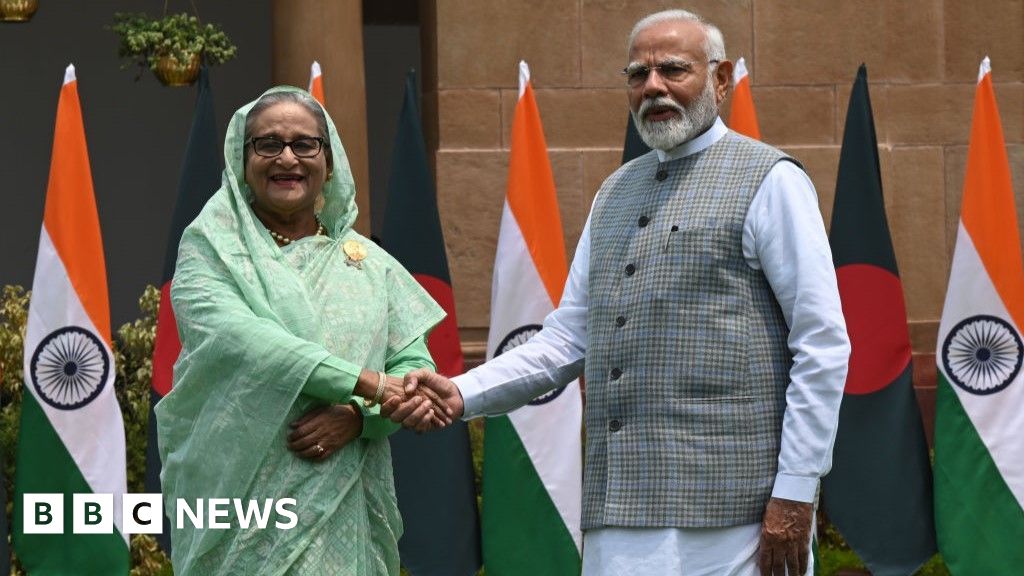Exploding pagers, robot guns & phone bombs… inside Mossad’s elaborate assassination arsenal to wipe out Israel’s enemies
MOSSAD’s arsenal of top secret spy weapons includes robot guns and poison syringes to assassinate Israel’s enemies. The spy agency yesterday carried out mass sabotage against Hezbollah when it blew up hundreds of pagers carried by the terror group. Footage of the Israeli strike in Khan Yunis that killed Mohammed Deif AFPFakhrizadeh was shot 13 times by a remote controlled gun[/caption] UnpixsIsrael attacked Hezbollah with a pager explosion blitz yesterday[/caption] HandoutHotel surveillance footage shows Mossad agents during a 2010 assassination in Dubai[/caption] A remote controlled mounted gun similar to one pictured was used to assassinate one nuclear scientist XThousands of people were injured in the pager blitz yesterday[/caption] With an annual budget of nearly £2.2billion and more than 7,000 staff members, Israeli intelligence officers are seeking revenge for the October 7 terror a

MOSSAD’s arsenal of top secret spy weapons includes robot guns and poison syringes to assassinate Israel’s enemies.
The spy agency yesterday carried out mass sabotage against Hezbollah when it blew up hundreds of pagers carried by the terror group.







With an annual budget of nearly £2.2billion and more than 7,000 staff members, Israeli intelligence officers are seeking revenge for the October 7 terror attack.
Yesterday’s blitz inside Lebanon sent a message to Iran and its proxies that Israel could attack hundreds of people at once.
But the agency can also launch pinpoint strikes to take out key enemies individually.
Most famously Mossad agents captured Nazi Adolf Eichmann from Argentina in 1960 and brought him to Israel to face trial.
Haniyeh hit
In July this year, Israel used a bomb smuggled months earlier into a Tehran guest house to assassinate the leader of Hamas.
Ismail Haniyeh was blown up at around 2am as he slept in one of the of the most secure sites in the Iranian capital.
It was initially unclear how Israel had carried out the attack, with some suspecting a drone had fired a missile.
The strike came after Hezbollah terrorists blasted a football pitch in the Druze town of Majdal Shams in Israel’s occupied Golan Heights – killing 12 young people including children.
Haniyeh met Ayatollah Ali Khamenei just hours before Iran’s Supreme Leader led prayers at his funeral.
Israel announced the next day it had also killed the one-eyed Mohammed Deif, dubbed “The Guest”.
Deif was one of the terrorist architects behind the October 7 attacks that killed 1,200 people in Israel last year.
IDF fighter jets took out the terrorist mastermind in a “precise, targeted” strike on a compound in Gaza on July 13 after spies had tracked him.
Ultrasound poison syringes
In 2010, Mahmoud al-Mabhouh – one of the founders of Hamas’ military wing – was assassinated in his hotel room in Dubai.
A team of several dozen agents flew to Dubai on false passports, wearing wigs, outfits and false moustaches to disguise themselves as tourists and tennis players.


CCTV footage of the some 29 suspects who tracked him showed two of them following him through the hotel to observe his room number and the one opposite.
The suspected Mossad agents allegedly used a high-tech ultrasound tool to inject poison into Mabhouh’s neck without even breaking the skin.
He was dead by 9pm that evening.
Poisoning has also been a preferred modus operandi, as it is quick and lethal in nearly all cases.
In 2007 long-time Mossad target Ardeshir Hosseinpour was believed to have been killed by poison gas amid fears he was spearheading the production of weapons grade plutonium.
Remote controlled machine gun
In 2020, the so-called “Kidon Unit” inside Mossad assassinated Dr Mohsen Fakhrizadeh, the mastermind of Iran’s suspected nuclear weapons programme,
Fakhrizadeh’s was killed with a remote control machine gun mounted to the back of a car – which was smuggled into Iran and assembled piece-by-piece.


Mossad agents used the remote controlled gun to to fire 13 hyper accurate shots that hit the scientist directly, the Jewish Chronicle reported.
Fakhrizadeh was not the first Iranian scientist to be killed by Israel.
In 2010 Iranian nuclear scientist Masoud Masoud Alimohammadi was killed by a booby-trapped motorbike parked near his car which exploded while he was leaving for work.
Majid Shahriari, a professor at Iran’s Shahid Beheshti University was killed a year later after an assassin attached a car bomb and detonated it from a distance.


In 2011 Iranian nuclear scientist Darioush Rezaeinejad was shot five times and killed by motorcycle-riding gunmen in front of his home.
Magnetic bombs are a key weapon of choice for Mossad agents, as they can be detonated from afar.
The devices are intended to kill the occupants of cars without killing those nearby, which traditional car bombs often do.
In 1996 the unit notoriously blew up the mobile phone of Hamas master bomb-maker Yahya Ayyash when he answered it after managing to secretly pack a high explosive called RDX and a remote controlled detonator.
In 2012, Iranian nuclear scientist Mostafa Ahmadi-Roshan was killed by a magnetic bomb attached to the bottom of his car.
Some agents have even revealed techniques include using spare tyres to hide remote controlled bombs and poisoned toothpaste that takes months to kill its victims.
Each operation from elite Mossad agents can only be carried out with the approval of the Prime Minister.
Once approved, the operation is sent for planning and execution, which can take months or years, depending on the case.
Despite hundreds of documented executions, Israel has never once admitted to being behind the list of deaths – all of whom were labelled as “enemies of the state”.
Israel or Mossad is yet to comment on yesterday’s sabotage attack.
Who was Hamas leader assassinated in July?

By Ellie Doughty, Foreign News Reporter
Ismail Haniyeh, one of the founding members of the terror group, unflinchingly represented the bloodthirsty clan for decades, even past the death of his own children.
The 62-year-old was responsible for running Hamas’ political operations from Doha, Qatar’s capital.
Born in a refugee camp in northern Gaza, he lead the group through several wars with Israel and served as a fundamental power player for the cult.
Over the last ten months he had been responsible for conducting ceasefire talks, mediated by Qatar, Egypt and the US.
He survived an Israeli assassination attempt in 2003, before the IDF took out his mentor – the founder of Hamas itself Sheik Ahmed Yassin – in 2004.
Standing outside a hospital in Gaza at the time, the man who would become one of Hamas’ principal leaders urged people not to cry but to focus on revenge instead.
By 2006 he was working as the leader of Hamas in Gaza, a position now held by Israel’s number one enemy – Yahya Sinwar.
He moved to Qatar in 2017 when he was named as the group’s new political leader.
The group was trying to change its image at the time as it made bids across the international stage for more influence.
Haniyeh represented the Iran-backed terror proxy in Qatar, Turkey, Lebanon, Iran and Egypt.
His ruthless approach to furthering the Hamas agenda would overrule even the assassination of his own children and grandchildren years later.
In April this year an Israeli airstrike killed three of Haniyeh’s sons and four of his grandchildren.
In June, Hamas claimed his sister and her family were also killed by an Israeli strike.
Haniyeh simply said at the time: “We shall not give in, no matter the sacrifices.”
He added that he had lost dozens of family members over years of war between Hamas and Israel.
The terror boss was given news of his children’s deaths while on a hospital visit. After hearing the news, he continued to tour the building as normal.
Haniyeh spent time inside Israeli prisons in the 1980s and 1990s.
By 1988 he was among the founding members of Hamas, working under Yassin.
His assassination serves as a fundamental blow to Hamas – with leaders dubbing it a “treacherous Zionist raid” on Wednesday morning.



















